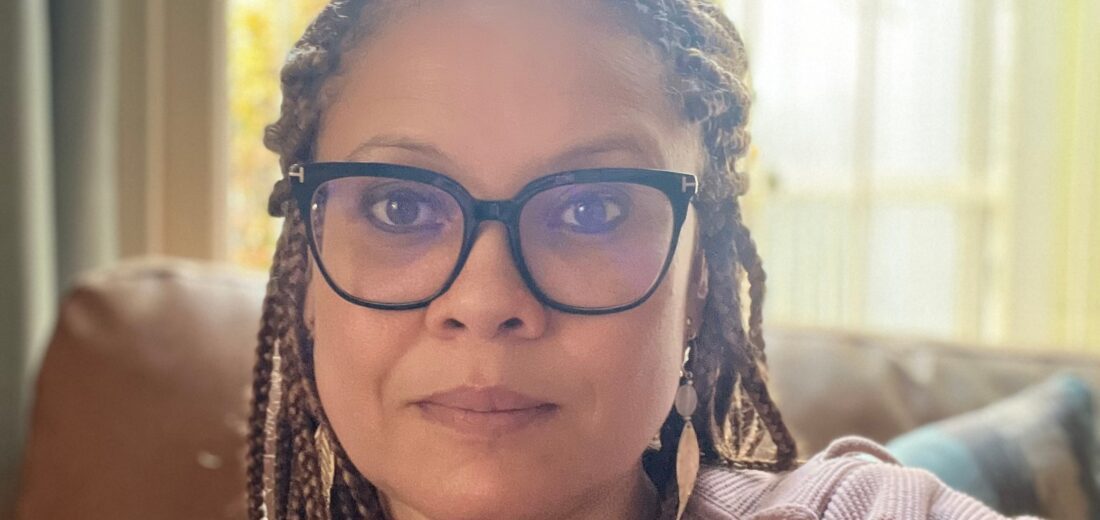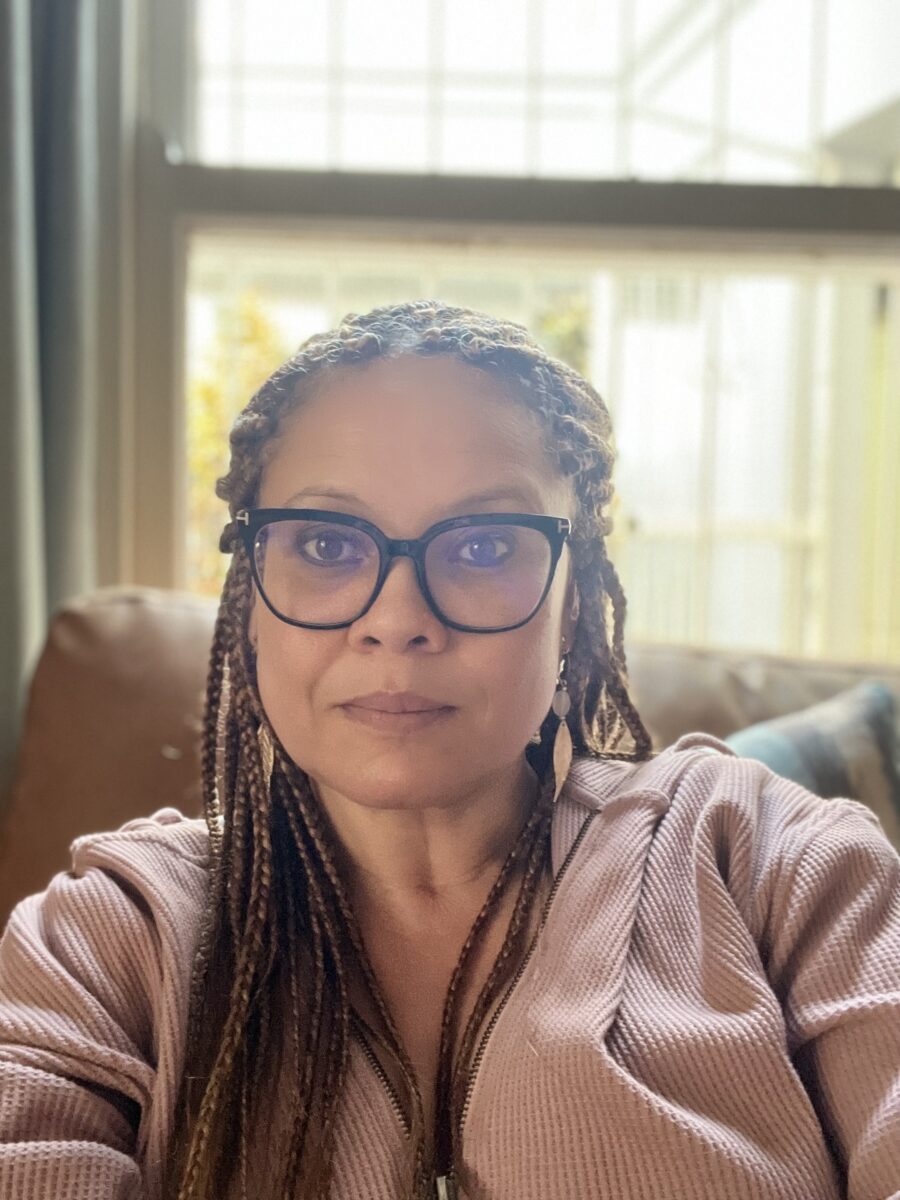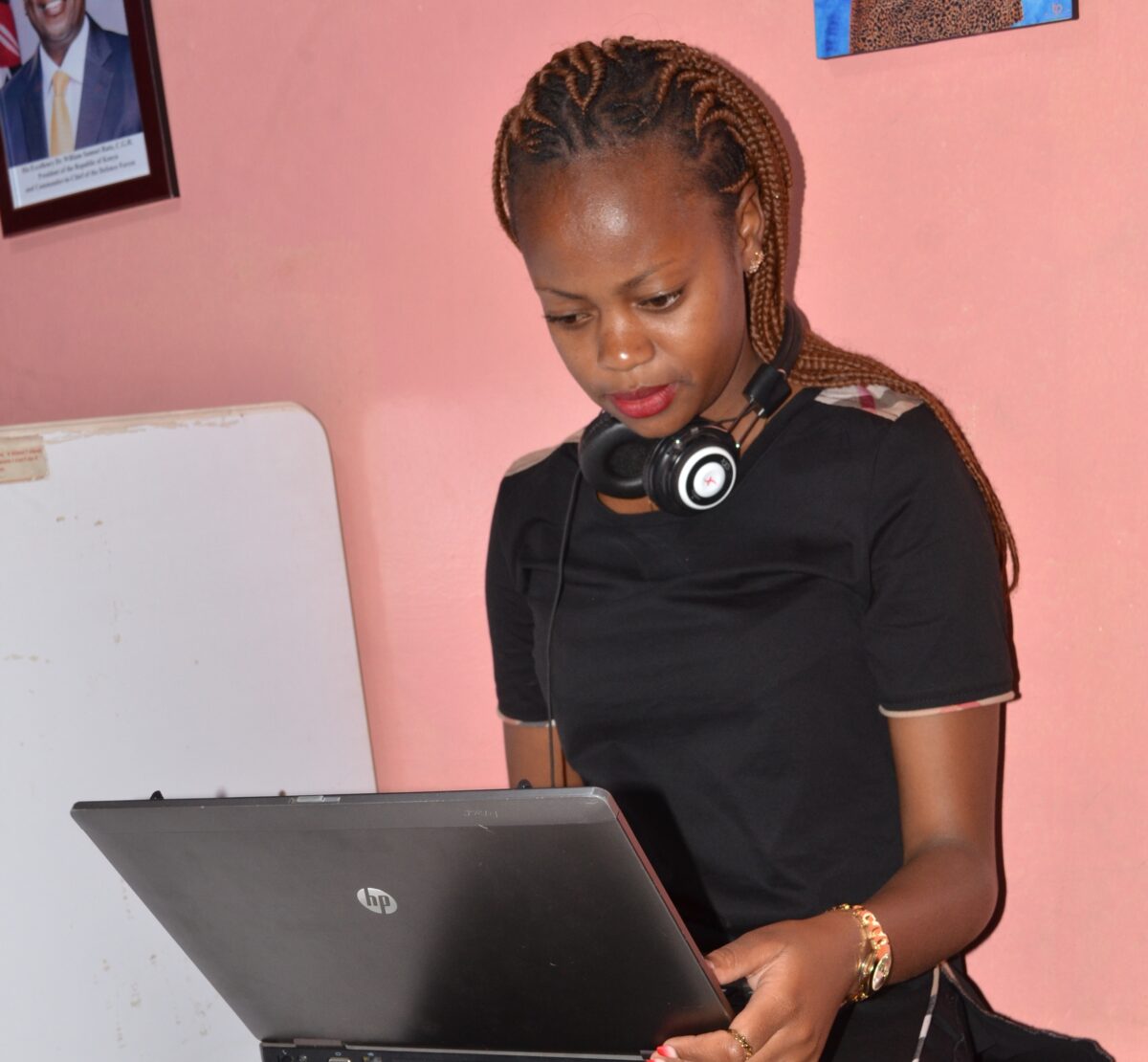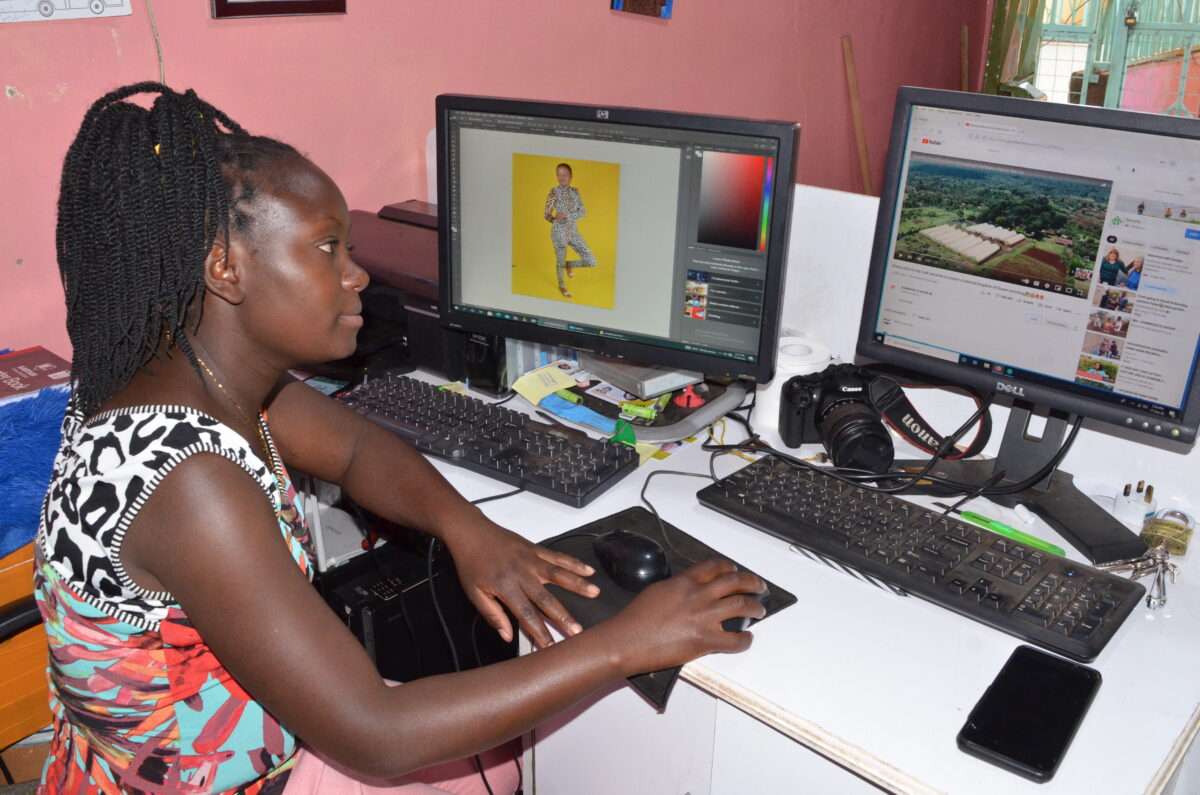
The net is not neutral
The emergence of the world wide web presented feminism with new opportunities and challenges, observes South African Jan Moolman. A conversation about the gender gap, online activism and digital pioneers. ‘It is a misconception to assume that we will ever be one big happy family online,’ she says, ‘because offline we aren’t either.’ But hope prevails.
Jan Moolman has a love-hate relationship with the internet – or rather, as it is today. The South African feminist coordinates the women’s rights programme of APC, an international network organisation that uses ICT for social justice.
Her goal: to create an online environment where everyone feels at home. ‘Now it’s the white boys from Silicon Valley who define what the internet looks like for everyone,’ she says.
The rise of the internet brought a lot of feminism, and as an African woman, Moolman experienced this firsthand: ‘I suddenly had access to a wealth of information.’ With a few mouse clicks, a world opened up for her. On blogs like HOLAAfrica! and Adventures from the Bedrooms of African Women, she got an intimate insight into other African women’s experiences with love and sexuality.
‘The internet gives a voice to people who were previously not heard. That’s a classic feminist theme.’ But there also was a downside to the web’s rise.
When the internet as we know it emerged in the 1980s, it was surrounded by utopian expectations. This cutting-edge and revolutionary technology–democratic and decentralised–would connect everyone in the world. The idea was that it would be an effective equaliser, minorities and marginalised groups in particular would benefit from this. ‘Of course, that was very naive,’ she sighs.

Not much is left of that original utopianism. Whistleblower Edward Snowden showed in 2013 how governments use it to spy on citizens. In documentaries such as The Social Dilemma, social media platform architects apologise for scroll addiction and online bubbles.
For women in particular, Moolman observes, the world wide web is often unsavoury territory: ‘It is not surprising that existing power structures and misogyny are also emerging online – we should have known that would happen.’
She points to the ubiquity of ‘online gender-based violence.‘ This relatively recent term encompasses the various ways women are harassed and intimidated on the internet, from cyberstalking to revenge porn. Women – especially when they express their opinions – are also prime victims of fake news campaigns. ‘These are often aimed at female journalists and politicians.’
APC was founded in 1990 when the web was still in its infancy. ‘We started as a network of women and organisations from Asia, Africa and Latin America interested in new communication technologies.’
It advises the United Nations and in 2016 published a manifesto, drawn up after consultations with more than a hundred feminists. It outlines the contours of the future kind of internet. ‘There was an increasing focus on the political aspect of the web,’ she says.
Two years before APC, in ‘88, the Netherlands became the second country in the world to connect to the Internet. Under Minister Liesje Schreinemacher, digitisation has now become one of the spearheads of Dutch development policy.
Emerging disparity
That in itself is an excellent thing, says Jan Moolman, but: ‘The net is not neutral,’ she urges the minister. ‘Women have different experiences from men, and in the Global South there are different challenges than in the West.’
Internet access, for example. While more than 90 percent of people in the West can access it, connectivity is still a luxury in many parts of the world. ‘In part, this is due to the costs: it is very expensive in many southern countries.’
Moolman’s sister once told her that during online university exams, she had to be selective about which questions she answered. ‘She didn’t have enough data to submit the whole test.’
And in addition to this digital divide between North and South, there is also a digital gender gap: women have less access to the internet than men – especially in the South. According to the World Wide Web Foundation, men are up to 50 percent more likely to have internet access than women in the least developed countries. Africa is the only continent where that gap appears to be widening.
After the publication of the Dutch policy plans, the NGO Plan International wondered how they would ‘benefit girls who have never been connected to WiFi.’ Moolman agrees. Moreover, ‘Women in the South – like everyone else – have the right to use the internet. It’s about freedom of choice.’
More African women are finding their way onto the web. According to the research agency Afrobarometer, the number of women who regularly browse online has more than doubled in five years, from eleven to 26 percent.
In many cases, they use their internet connection as an activist tool, says Ugandan blogger and journalist Rosebell Kagumire. In an article on the news platform The Elephant, she writes that a fourth feminist wave is emerging in Africa, in which digital resources are central.

The #SudanWomenProtest hashtag sparked the 2019 protests that ended dictator Omar al-Bashir’s reign. In Nigeria, online feminists spearheaded the #EndSars demonstrations against police brutality.
At the same time, its rise is a double-edged sword, says Kagumire. When a well-known Ugandan poet criticised the government on Facebook for not providing sanitary pads to teenage girls – who stopped reporting to school as a result – she was sentenced to a year in prison.
Repressive policies
Governments do not shy away from shutting down the internet or spying on dissidents online. Several African governments were recently embarrassed. It was revealed that they were using the infamous spying software Pegasus, from Israeli company NSO. ‘And it’s always the marginalised groups,’ says Moolman, ‘who are hit the hardest.’
A few years ago, the APC was told by women’s rights activists that their Facebook pages were blocked. They used their online reach to draw attention to women’s positions and discuss socially sensitive topics.
Moolman: ‘Their messages were reported en masse and flagged as “inappropriate.” If there are many reports, the reported profiles will be removed.’ Facebook policy nipped unwelcome opinions in the bud. ‘We see it happening more and more with women standing up for their or other group’s rights.’
It partly stems from a blind spot at the big tech companies: Facebook, Twitter and Google. ‘When it comes to content policies and terms of use, they use a one-size fits all approach. There is no regard for the local context – and therefore no consideration of how policies affect marginalised groups.’
It worries her that Silicon Valley’s grip on the web is strengthening. ‘It’s concerning that the internet is increasingly in the hands of three companies: they determine everything for the rest of us.’
Moolman believes more internet access is needed in the South, but you also have to look at the effect digitisation has on marginalised groups. And ‘that’s where wearing the intersectional glasses is required,’ she says.
Digital technology is potentially emancipatory, but it can also reinforce oppression. ‘So always ask the question: how does it affect girls or sexual minorities?’ Or, in other words, what kind of internet are they offered access to?
The internet needs to be decolonised, according to Moolman – and that is partly a matter of money. Poor countries currently benefit very little from the digital revolution. According to UN organisation UNCTAD, ninety per cent of online platform revenues accrue to US and Chinese companies.
But the current internet is also colonial in language offerings, she says. ‘Platforms are currently dominated by the English language,’ which means that cultural diversity is erased online, but also that the internet is less accessible. ‘You can often only approach large social media companies in English.’
Platforms also need to be democratised, she thinks: ‘Let people vote on what features are offered to them, or what rules are applied – that is completely opaque at the moment.’ The tech giants claim they are willing to reform, but the extent to which this is sincere remains to be seen, according to Moolman. ‘Above all, there need to be more alternatives.’
Better option
And they do exist, Moolman observes: at the edges of the web, the internet is being reinvented. Manyverse is a free social medium ‘without the bad stuff,’ which respects users’ privacy, is not owned by a company, and does not show ads.
Brazilian activists launched messaging services that could withstand internet shutdowns. Feminist hackers from Brazil and Mexico even invented an open-source wireless network. It is completely separate from the internet and can securely share digital content. ‘A lot more energy needs to be put into initiatives like that,’ she says.

Because although they succeed in outlining a radically different vision for the internet, it is currently fighting a losing battle. ‘At the moment, they are on the fringes. More investment is needed.’
The Dutch government can play a role in that process – even if it has to abandon its mercantile spirit. ‘First and foremost, we need to look at innovation differently. Now it is still defined in a very capitalistic way: the emerging technologies and platforms must first and foremost make a lot of money.’
Fuxico, Manyverse, and similar initiatives are therefore not innovative when viewed through that lens. ‘They are open source and often use free software – making profit is not the main focus.’ But it is precisely because they stem from the needs of users and local communities that they are so valuable, says Moolman. ‘We need to empower people to be active online on their terms.’
Although there is still a world to conquer, digital pioneers give her hope. She also believes the growing attention to the problematic sides of the current internet – white, Western and patriarchal – is an encouraging sign.
But, she stresses, the internet will never be completely flawless. The virtual world has much to offer, especially to those on the sidelines, but a healthy dose of reality is in order. ‘It is a misconception to assume that we will ever be one big happy family online because offline we aren’t either.’

Leave a Reply